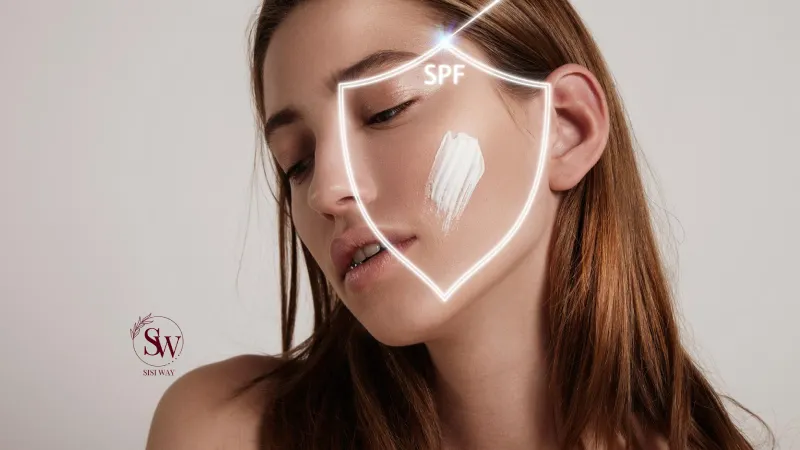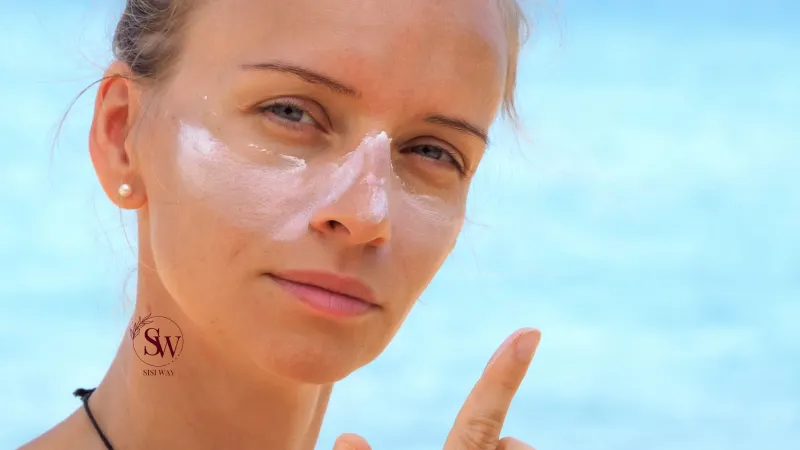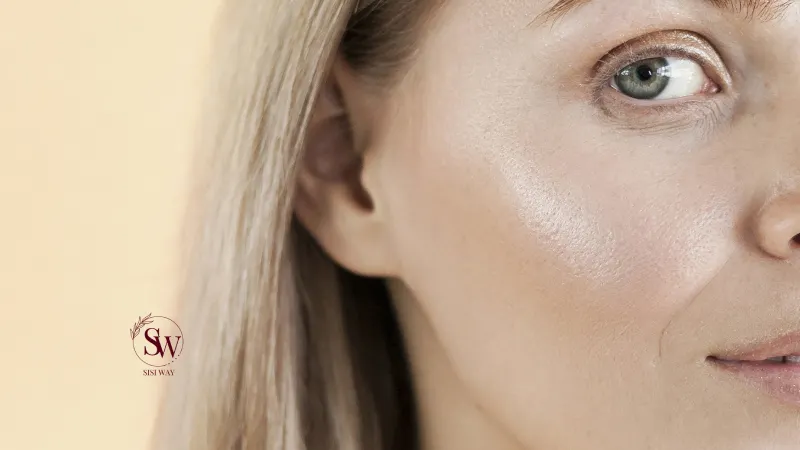Best Sunscreen for Oily Skin

What’s the Best Sunscreen for Oily Skin?
Having oily skin can make finding the right sunscreen a challenge. The fear of a greasy and heavy formula can discourage those with oily skin from using sunscreen regularly. However, with the right product, you can protect your skin from harmful UV rays without exacerbating oiliness or clogging your pores. In this article from sisiway, we will explore the best sunscreens specifically formulated for oily skin, ensuring you can confidently shield your skin while maintaining a shine-free complexion.

Top Sunscreen Recommendations for Oily Skin:
-
La Roche-Posay Anthelios Clear Skin Dry Touch Sunscreen:
This best sunscreen for oily and acne-prone skin is specifically formulated for oily and acne-prone skin. It has a lightweight, oil-free texture that absorbs quickly, leaving a matte finish without clogging pores.
The specific ingredients in La Roche-Posay Anthelios Clear Skin Dry Touch Sunscreen may vary slightly depending on the formulation and the region in which it is sold. However, here are the common ingredients found in this best sunscreen for oily skin spf 50:
Active Ingredients:
- Avobenzone (3%)
- Homosalate (15%)
- Octisalate (5%)
- Octocrylene (7%)
- Oxybenzone (6%)
Inactive Ingredients:
Water, Silica, Styrene/acrylates copolymer, Diisopropyl sebacate, C12-15 alkyl benzoate, Tocopherol, Dimethicone, Propylene glycol, Triethanolamine, PEG-100 stearate, Glyceryl stearate, Phenoxyethanol, Stearic acid, Potassium cetyl phosphate, Caprylyl glycol, PEG-8 laurate, Acrylates/C10-30 alkyl acrylate crosspolymer, Disodium EDTA, Inulin lauryl carbamate, Xanthan gum, Ethylhexylglycerin, T-butyl alcohol.
-
Neutrogena Ultra Sheer Dry-Touch Sunscreen:
This popular sunscreen offers broad-spectrum protection while having a non-greasy, dry-touch finish. It is lightweight, absorbs quickly, and is suitable for everyday use. This cream helps you get rid of blackheads on your nose.
The specific ingredients in Neutrogena Ultra Sheer Dry-Touch Sunscreen may vary slightly depending on the formulation and specific product variant. However, here are some common ingredients found in Neutrogena Ultra Sheer Dry-Touch Sunscreen:
Active Ingredients:
- Avobenzone (3%)
- Homosalate (15%)
- Octisalate (5%)
- Octocrylene (10%)
- Oxybenzone (6%)
Inactive Ingredients:
- Water
- Silica
- Styrene/acrylates copolymer
- Beeswax
- Ethylhexylglycerin
- Benzyl alcohol
- Dimethicone
- Tocopheryl acetate (Vitamin E)
- Sodium polyacrylate
- Disodium EDTA
- Methylisothiazolinone
- Propylene glycol
- BHT
- Fragrance
-
EltaMD UV Clear Facial Sunscreen:
Designed for sensitive and acne-prone skin, this sunscreen is oil-free and contains ingredients like niacinamide to soothe and calm the skin. It provides broad-spectrum protection with a lightweight, non-greasy formula.
The specific ingredients in EltaMD UV Clear Facial Sunscreen may vary slightly depending on the formulation and specific product variant. However, here are some common ingredients found in EltaMD UV Clear Facial Sunscreen:
Active Ingredients:
- Zinc Oxide (9%)
- Octinoxate (7.5%)
Inactive Ingredients:
- Purified Water
- Cyclopentasiloxane
- Niacinamide
- Octyldodecyl Neopentanoate
- Hydroxyethyl Acrylate/Sodium Acryloyldimethyl Taurate Copolymer
- Polyisobutene
- PEG-7 Trimethylolpropane Coconut Ether
- Sodium Hyaluronate
- Tocopheryl Acetate (Vitamin E)
- Lactic Acid
- Oleth-3 Phosphate
- Phenoxyethanol
- Butylene Glycol
- Iodopropynyl Butylcarbamate
- Triethoxycaprylylsilane
-
Supergoop! Unseen Sunscreen:
This transparent and weightless sunscreen is ideal for oily skin. It has a velvety texture that absorbs quickly and leaves a matte, non-greasy finish. It also works well as a makeup primer.
The specific ingredients in Supergoop products can vary depending on the specific product and formulation. However, here are some common ingredients that you may find in Supergoop sunscreens:
Active Ingredients:
- Zinc Oxide
- Titanium Dioxide
- Avobenzone
- Octinoxate
- Octisalate
- Homosalate
- Octocrylene
Inactive Ingredients:
- Water
- Glycerin
- Caprylic/Capric Triglyceride
- Cetyl Alcohol
- Glyceryl Stearate
- Polyglyceryl-3 Polyricinoleate
- Isododecane
- Polyhydroxystearic Acid
- Aloe Barbadensis Leaf Extract
- Tocopheryl Acetate (Vitamin E)
- Sodium Hyaluronate
- Camellia Sinensis Leaf Extract (Green Tea Extract)
- Punica Granatum Fruit Extract (Pomegranate Extract)
- Vitis Vinifera (Grape) Seed Extract
- Ascorbic Acid (Vitamin C)
- Panthenol (Pro-Vitamin B5)
- Xanthan Gum
Also read: How to Rejuvenate Skin?
-
Biore UV Aqua Rich Watery Essence Sunscreen:
Biore UV Aqua Rich Watery Essence Sunscreen is a popular Japanese sunscreen that is known for its lightweight and watery texture, making it ideal for oily skin. It has a non-greasy formula that quickly absorbs into the skin without leaving a heavy or sticky residue. This sunscreen provides a high level of protection against both UVA and UVB rays with its SPF 50+ and PA++++ rating. It also contains hyaluronic acid and other moisturizing ingredients to help keep the skin hydrated without adding excess oil. The Biore UV Aqua Rich Watery Essence Sunscreen is water-resistant, making it suitable for outdoor activities and everyday wear. Its refreshing and comfortable feel on the skin makes it a popular choice for individuals with oily skin who want a lightweight and effective sunscreen. To have a daily routine for glowing skin, you can use this best sunscreen for oily skin.
Here are the ingredients commonly found in Biore UV Aqua Rich Watery Essence Sunscreen:
Active Ingredients:
- Ethylhexyl Methoxycinnamate (Octinoxate)
- Diethylamino Hydroxybenzoyl Hexyl Benzoate (Uvinul A Plus)
- Bis-Ethylhexyloxyphenol Methoxyphenyl Triazine (Tinosorb S)
- Ethylhexyl Salicylate (Octisalate)
Inactive Ingredients:
Water, Alcohol, Lauryl Methacrylate/Sodium Methacrylate Crosspolymer, C12-15 Alkyl Benzoate, Bis-Ethylhexyloxyphenol Methoxyphenyl Triazine, Diethylamino Hydroxybenzoyl Hexyl Benzoate, Ethylhexyl Triazone, Dimethicone, Xylitol, Dextrin Palmitate, Acrylates/C10-30 Alkyl Acrylate Crosspolymer, Xanthan Gum, Sodium Hydroxide, Butylene Glycol, Caprylyl Glycol, Sodium Hyaluronate, Phenoxyethanol, Fragrance.
-
best sunscreen for oily skin spf 50:
mCaffeine’s 100% Mineral Powder Sunscreen SPF 50 PA+++ is a unique and innovative sunscreen option that offers effective sun protection with a lightweight and convenient powder formula. This sunscreen is specially formulated with mineral-based ingredients like zinc oxide and titanium dioxide, which provide broad-spectrum protection against both UVA and UVB rays. The high SPF 50 and PA+++ rating ensure superior defense against harmful sun damage and premature aging. The powder format allows for easy application and reapplication throughout the day, making it perfect for on-the-go use. It offers a matte finish that helps to control excess shine, making it suitable for oily skin types. Additionally, the formula is free from harmful chemicals like parabens and sulfates, making it a safer option for sensitive skin.
Understanding Oily Skin and Sunscreen
Oily skin is characterized by an overproduction of sebum, which can lead to a shiny complexion, enlarged pores, and a predisposition to acne breakouts. When it comes to sunscreen, it’s important to choose the right product that effectively protects the skin from the sun’s harmful rays without exacerbating oiliness or clogging pores. Look for sunscreens specifically formulated for oily skin that have a lightweight, non-greasy texture. These sunscreens are often oil-free and non-comedogenic, meaning they won’t clog pores or contribute to breakouts. Additionally, opt for sunscreens with a matte finish or oil-control properties to help combat excess shine throughout the day.

Finding the right sunscreen for oily skin is crucial to maintain healthy skin and protect it from sun damage. Sunscreen should be an essential part of any skincare routine, as even oily skin needs protection from the sun’s harmful UV rays. It’s important to choose a broad-spectrum sunscreen with a high SPF (preferably SPF 30 or higher) to shield the skin from both UVA and UVB rays. Regular and consistent application of sunscreen is key, particularly when spending time outdoors or under direct sunlight. By understanding the specific needs of oily skin and selecting the appropriate sunscreen, you can ensure optimal sun protection without compromising your skin’s health or exacerbating oiliness.
Choosing the Right Sunscreen for Oily Skin
The best sunscreen for oily skin should have several key characteristics to effectively address the unique needs of oily skin types:
Non-Comedogenic:
The sunscreen should be labeled as non-comedogenic, meaning it won’t clog pores or contribute to acne breakouts. Look for oil-free formulations that are specifically designed for oily or acne-prone skin.

Lightweight and Non-Greasy
Oily skin tends to produce excess sebum, so a lightweight and non-greasy sunscreen is essential. Choose a formula that absorbs quickly into the skin without leaving a heavy or sticky residue.
Matte Finish
Sunscreens that offer a matte finish help to control excess shine throughout the day. Look for products that specifically mention a matte or oil-control effect to help keep your skin looking fresh and shine-free.
Broad-Spectrum Protection
A good sunscreen for oily skin should provide broad-spectrum protection against both UVA and UVB rays. Look for sunscreens with an SPF of at least 30 or higher and a PA rating to ensure adequate protection.
Oil-Control and Mattifying Ingredients
Some sunscreens for oily skin may contain oil-absorbing or mattifying ingredients like silica, kaolin clay, or rice powder. These ingredients can help to reduce excess oil production and keep the skin looking matte for longer periods.
Water-Based or Gel Formulation
Water-based or gel-based sunscreens tend to be lighter in texture and are more suitable for oily skin. These formulations are often less likely to contribute to a greasy or heavy feeling on the skin.
Remember, everyone’s skin is different, so it’s important to find a sunscreen that works well for your specific skin type and preferences. Conducting patch tests and consulting with a dermatologist can also be helpful in determining the best sunscreen for your oily skin.
FAQ
- Can I use a sunscreen that is not specifically labeled for oily skin on my oily skin?
It’s generally recommended to choose a sunscreen that is specifically formulated for oily skin. These sunscreens are often oil-free, non-comedogenic, and have a lightweight, matte finish that helps control excess shine and minimize clogged pores.
- Should I avoid sunscreens with moisturizing ingredients if I have oily skin?
While some moisturizing ingredients can be heavier and potentially contribute to a greasy feel, there are lightweight sunscreens available that offer hydration without adding excess oil. Look for oil-free or water-based formulas with non-greasy moisturizers like hyaluronic acid or glycerin.
- How often should I reapply sunscreen on oily skin throughout the day?
It’s important to reapply sunscreen every two hours or more frequently if you’re sweating or rubbing the skin. For oily skin, you may prefer using a powder or mattifying sunscreen for easy touch-ups without disturbing your makeup or leaving a greasy residue on the skin.
Conclusion:
Finding the best sunscreen for oily skin is essential to protect your skin from the sun’s harmful rays without exacerbating oiliness or causing breakouts. The recommended sunscreens mentioned above offer lightweight, oil-free formulations that provide broad-spectrum protection while maintaining a shine-free and matte appearance. Remember, consistent sunscreen application, along with other oil-control measures and a proper skincare routine, will help you manage oily skin effectively. Embrace sun protection with confidence, knowing that you can achieve a healthy, protected complexion even with oily skin.



